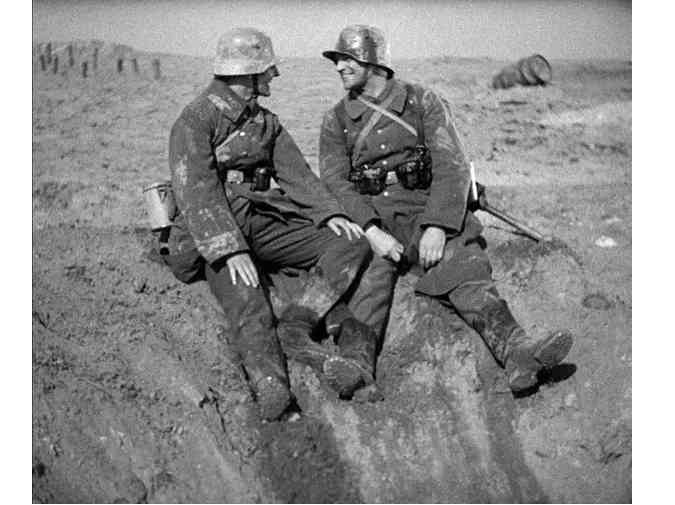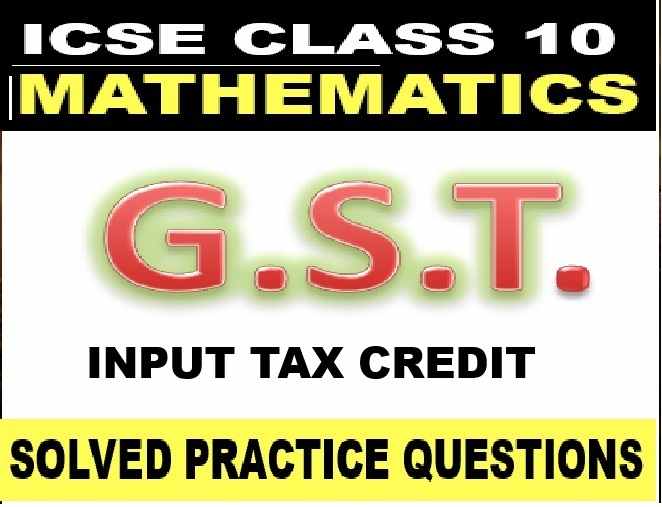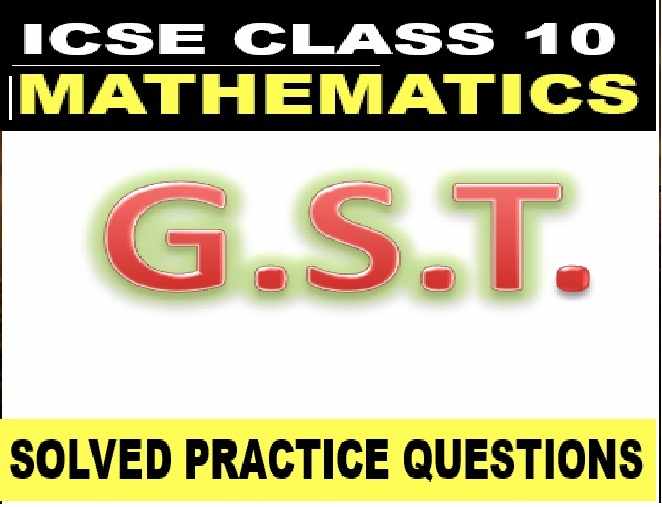Strange Meeting: MCQs Workbook ISC Rhapsody A collection of ISC Poem Solutions. Important Multiple Choice Questions of Ch-5 Strange Meeting composed by Wilfred Owen. Visit official website CISCE for detail information about ISC Board Class-11 English

Strange Meeting: MCQs Workbook ISC English Rhapsody Solutions
| Board | ISC |
| Publisher | Evergreen Publications |
| Subject | English |
| Class | 11 |
| Book Name | Rhapsody (A collection of ISC Poem ) |
| Chapter-5 | Strange Meeting — Wilfred Owen |
| Topics | Multiple Choice Questions |
Multiple Choice Questions
Strange Meeting: MCQs Workbook ISC Rhapsody A collection of ISC Poem Solutions
Question: (i) Why is the meeting referred to in the poem is strange?
Answer: (c) because it seems unreal to the speaker
Question: (ii) What does the poet want to convey?
Answer: (c) the futility of war
Question: (iii) What kind of atmosphere in the poem is created
Answer: (b) eerie
Question: (iv) What do you think about what the speaker sees in the tunnel?
Answer: (b) what he sees is a kind of vision or nightmare
Question: (v) What do you think of the sleepers in the tunnel?
Answer: (a) they are dead soldiers
Question: (vi) What has the dead ‘enemy’ solider has understood?
Answer: (a) that war ideals are fake
Question: (vii) In what state of mind was the dead German soldier?
Answer: (b) mournful and repenting
Question: (viii) Why did the German soldier get killed easily?
Answer: (d) because his hands were unwilling to kill anyone
Question: (ix) The words ‘my friend’ spoken by the dead soldier reveals that he:
Answer: (d) had no feeling of hatred even for his killer
Question: (x) The German soldier had recognized his killer from:
Answer: (b) his frown
Extra MCQs Questions of Ch-5 Strange Meeting ISC Rhapsody
Question: 1. How does the poem illustrate the shared humanity of the speaker and the ‘strange friend’?
A. Through their shared laughter and joy B. Through their mutual understanding and shared regrets C. Through their shared desire to return to the battlefield D. Through their agreement on the glory of war
Answer: B. Through their mutual understanding and shared regrets
Question: 2. What is the overall tone of the poem?
A. Joyful and triumphant B. Sad and regretful C. Fearful and anxious D. Bitter and resentful
Answer: B. Sad and regretful
Question: 3. What does the ‘strange friend’ refer to when he mentions “the undone years”?
A. The years lost due to war B. The years before the war C. The years they will live after the war D. The years of training for the war
Answer: A. The years lost due to war
Question: 4. How does the ‘strange friend’ describe the beauty he pursued in the world?
A. As calm and serene B. As wild and elusive C. As plain and simple D. As harsh and cold
Answer: B. As wild and elusive
Question: 5. What is suggested by the phrase “Foreheads of men have bled where no wounds were”?
A. Physical injuries in the war B. Internal trauma and psychological scars of war C. Honourable scars of battle D. Accidental injuries
Answer: B. Internal trauma and psychological scars of war
Question: 6. Who is the ‘strange friend’ revealed to be?
A. The speaker’s brother B. A fellow soldier from the same side C. The enemy the speaker killed D. A figment of the speaker’s imagination
Answer: C. The enemy the speaker killed
Question: 7. What is the ‘strange friend’s’ reaction to meeting the speaker in the afterlife?
A. He is furious and vengeful B. He is terrified and panicky C. He is resigned and weary D. He is ecstatic and relieved
Answer: C. He is resigned and weary
Question: 8. How does Owen portray the societal attitudes towards war in the poem?
A. He applauds the heroism and bravery B. He criticizes its glorification and acceptance C. He remains neutral and unbiased D. He supports the cause of war
Answer: B. He criticizes its glorification and acceptance
Question: 9. What does Owen suggest about the traditional ideals of heroism and valor in war?
A. He reinforces the value of these ideals B. He dismisses these as unnecessary in the face of war C. He promotes these as the only way to survive in war D. He challenges these by revealing the grim realities of war
Answer: D. He challenges these by revealing the grim realities of war
Question: 10. How does Owen use the setting of ‘Hell’ in the poem?
A. As a symbol of the afterlife B. As a critique of war C. As a representation of the battlefield D. As a comforting place for the dead
Answer: B. As a critique of war
Question: 11. What does the ‘strange friend’ mean when he says “Let us sleep now”?
A. He wants to rest after a long conversation B. He is expressing his desire to escape the realities of war C. He is suggesting that they’re in a dream D. He is conveying a sense of resignation and shared fate in death
Answer: D. He is conveying a sense of resignation and shared fate in death
Question: 12. What is the ‘strange friend’s’ commentary on the men who will continue the war?
A. They will be victorious and glorious B. They will break ranks and rebel C. They will be content with the destruction or discontent and cause more bloodshed D. They will abandon the war and seek peace
Answer: C. They will be content with the destruction or discontent and cause more bloodshed
Question: 13. Which of the following themes does Owen explore in the poem?
A. The beauty and glory of war B. The heroism and valor in war C. The futility and disillusionment in war D. The strategic and tactical aspects of war
Answer: C. The futility and disillusionment in war
Question: 14. What does the phrase “Courage was mine, and I had mystery; Wisdom was mine, and I had mastery” imply?
A. The speaker’s pride in his achievements in war B. The speaker’s remorse over his actions in war C. The speaker’s disillusionment with the false ideals of war D. The speaker’s satisfaction with his understanding of war
Answer: C. The speaker’s disillusionment with the false ideals of war
Question: 15. What is suggested by the line “I would have poured my spirit without stint But not through wounds; not on the cess of war”?
A. The speaker’s eagerness to fight in the war B. The speaker’s willingness to sacrifice his life for a better cause, not war C. The speaker’s disdain for those who don’t fight in the war D. The speaker’s satisfaction in causing harm to the enemy
Answer: B. The speaker’s willingness to sacrifice his life for a better cause, not war
Question: 16. What is implied by the line “None will break ranks, though nations trek from progress”?
A. The nations will continue to progress despite the war B. The soldiers will stay in formation even in the face of danger C. The soldiers will blindly follow orders, even as the war leads to regression D. The nations will stick to their decisions, no matter the cost
Answer: C. The soldiers will blindly follow orders, even as the war leads to regression
Question: 17. How is the concept of lost time and opportunities depicted in the poem?
A. Through the imagery of a ticking clock B. Through the reference to the ‘undone years’ and wasted potential C. Through the depiction of a bustling city D. Through the comparison of war to a game
Answer: B. Through the reference to the ‘undone years’ and wasted potential
Question: 18. How does Owen utilize irony in the poem?
A. By showing the ‘strange friend’ laughing in Hell B. By portraying the speaker as a hero C. By revealing that the ‘strange friend’ is the enemy the speaker killed D. By suggesting that war is a joyous occasion
Answer: C. By revealing that the ‘strange friend’ is the enemy the speaker killed
Question: 19. What does the speaker first notice about the ‘strange friend’ he encounters?
A. His bright smile B. His furious expression C. His piteous recognition in fixed eyes D. His joyous laughter
Answer: C. His piteous recognition in fixed eyes
Question: 20. Where does the speaker realize he is, based on the ‘strange friend’s’ dead smile?
A. In a dream B. On a battlefield C. In Hell D. In a hospital
Answer: C. In Hell
— : End of Strange Meeting: MCQs Workbook ISC Rhapsody A collection of ISC Poem Solutions. : —
Return to – Rhapsody Workbook Answer of ISC Poem for Class 11 English
Thanks
Please, Share with your friend


